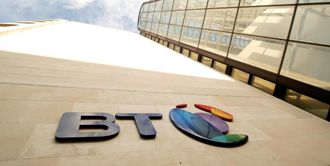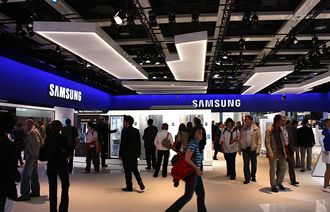 Having just launched their own 4G services, O2 and Vodafone are roughly neck and neck in speed and availability, according to a report.
Having just launched their own 4G services, O2 and Vodafone are roughly neck and neck in speed and availability, according to a report.
Conducting over 11,000 tests around central London over five days since the companies launched their 4G services, research company RootMetrics found that O2’s average blended 3G and 4G speed was 16.3 Mbps, compared to 16.2 Mbps from Vodafone. As 4G is not always available, Rootmetrics claims these are the speeds most customers will actually receive.
Having had an enormous head start, EE was given the chance to improve its speec and coverage. At present, its average 3G-4G download speed hit 22.7 Mbps, compared to 17.3 Mbps in April.
At least in central London, both O2 and Vodafone had made their services broadly available. Of the 310 miles within London’s borders, including indoor locations, Vodafone’s 4G was available in 69.4 percent of tests, compared to O2’s 63.9 percent.
For 4G only, O2 won out, reaching average speeds of 23.3 Mbps and a maximum download speed of 65.8 Mbps. Vodafone managed 20.8 Mbps on average and 57.7 Mbps maximum download speed. EE was still ahead with an average of 29.6 Mbps.
RootMetrics CEO Bill Moore said the tests bode well for providers and customers.
“EE has had the best part of a year to cement its place and remains the speed leader, but the early signs for O2 and Vodafone are very positive, especially when it comes to 4G availability,” Moore said. “This is all good news for the consumer as uploading your pictures or downloading content on the move will become quicker as coverage expands and improves”.
Many customers will be waiting for the price to dip. Although 4G in the UK is off to a good start, it is a premium service. Earlier this month, EE boasted it had passed the 1 million customer milestone ahead of schedule. But Ovum’s head of Industry, Communications & Broadband Practice told us with its head start, the company could have done even better. The demand is there, but for early technologies, prioritising getting the adoption rate up with cheaper plans may have put EE even further in the lead.
 Which? has told telecom firms to stop any plans to go ahead with ‘unconscionable’ broadband and mobile price hikes in April, even after the industry watchdog found the practice hurts consumers and set out plans to ban it.
Which? has told telecom firms to stop any plans to go ahead with ‘unconscionable’ broadband and mobile price hikes in April, even after the industry watchdog found the practice hurts consumers and set out plans to ban it.


















